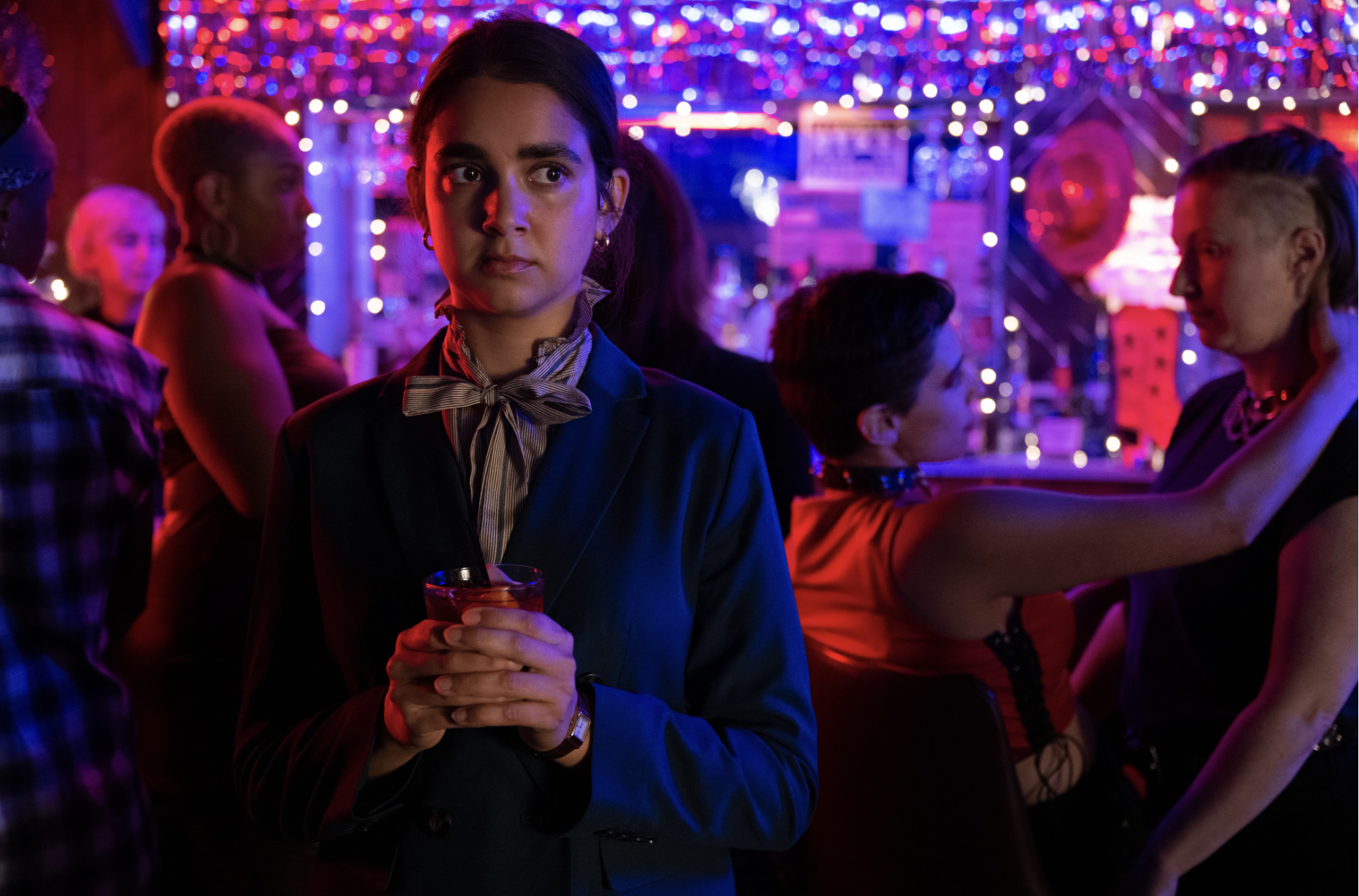Film Review: Drive-Away Dolls
Film Reviews
Drive-Away Dolls
Director: Ethan Coen
Working Title Films
In Theaters: 02.23
When the Oscar-winning duo of Ethan and Joel Coen decided to try their hands at separate projects, Joel turned to none other than William Shakespeare, giving us The Tragedy of Macbeth. Ethan didn’t have the Bard to work CV with on Drive-Away Dolls, and stuck closer to home by collaborating with his wife, Tricia Cooke.
Drive-Away Dolls opens in Philadelphia in the first half of the ‘90s and follows two lesbians whose platonic friendship keeps them closely bonded even when they drive each other insane. Jami (Margaret Qualley, Sanctuary, Poor Things) is an uninhibited free spirit who floats from one relationship to the next with regular stops for casual hookups along the way. , After Jami’s latest breakup, she needs to skip town, and as it happens, the reserved Marian (Geraldine Viswanathan, Blockers, The Broken Hearts Gallery) is headed to Tallahassee to see family. Jami invites herself to go along so they can take turns driving and insists on visiting every lesbian bar on the East Coast along the way, and they get a car through a drive-away service. The only problem is that they end up with the wrong car, and when Arliss (Joey Slotnick, Twister) and Flint (C.J. Wilson, The Trial of the Chicago 7), the two criminals who were supposed to transport the vehicle, already had a couple of very sensitive items in it that they really need to recover, the two goons head off to find the young ladies who are already on a journey to find themselves, and everyone finds more than they expected to along the way.
Drive-Away Dolls is a throwback to Raising Arizona or The Big Lebowski in being a comedy framed around a crime gone wrong, as well a deliberate homage to the guns and sex exploitation movies of the ‘70s. The LGBTQ focus is new territory for a Coen film, and it’s used alternately for shock value, sweet little character moments or both at the same time. The desire to tell a queer story came from Cooke, who served as an uncredited co-director much in the same way that Ethan did back in the days before guild rules allowed the brothers to share billing. She’s also a lesbian, and has openly identified as one since before she and Coen were married (they now have separate partners), and the film draws heavily on her experiences in lesbian bars in the ‘90s. This bit of context makes a difference in feeling okay about just how ready Drive-Away Dolls is to get shamelessly crass about lesbian sex, or the use of slurs that were still in common use at the time in which the story takes place. While there’s clever and quotable dialogue, some of the comedy leans a bit too lowbrow and at times it feels a bit like Ethan is trying a bit too hard to live up to the Coen mystique. Psychedelic cutaway sequences bring Lebowski to mind, and the moments of shocking violence are reminiscent of both Blood Simple and Fargo. In fact, at times Drive-Away Dolls feels as much like an imitator as it does a true Coen film. Still, it’s entertaining throughout, and while it doesn’t have the highest belly-laugh-per-minute rate ever in a Coen movie, there’s enough of them to make it work, and it’s never boring.
The films rests heavily on the central performers, and they are more than up to the task. Viswanathan is incredibly endearing, and I was utterly invested in Marian from her first scene. Jami is the blatantly Coen-esque character, with Qualley adopting a thick Southern drawl, as well as a rapid-fire cadence that brings to mind Jennifer Jason Leigh in The Hudsucker Proxy. She pulls it off nicely, and the two make a strong comic duo. The star-studded supporting cast includes Colman Domingo, Beanie Feldstein, Pedro Pascal, Matt Damon and Miley Cyrus, and for the most part, they are all well-used. Bill Camp gets some very funny moments as Curlie, the owner of the drive-away.
Drive-Away Dolls isn’t a masterpiece on par with The Tragedy of Macbeth, and it’s a mistake to expect it to be one. It’s a raunchy sex comedy/buddy movie/romance/caper movie that doesn’t require a male lead to pull off any of these dynamics, and it’s decidedly not for all tastes. While Drive-Away Dolls bares the unmistakable mark of the Coen touch, it’s as much a debut for Cooke as a filmmaker as it is anything else, and as such, it shows a lot of promise. –Patrick Gibbs
Read more comedy film reviews here:
Slamdance Film Review: Darla in Space
Film Review: Next Goal Wins

